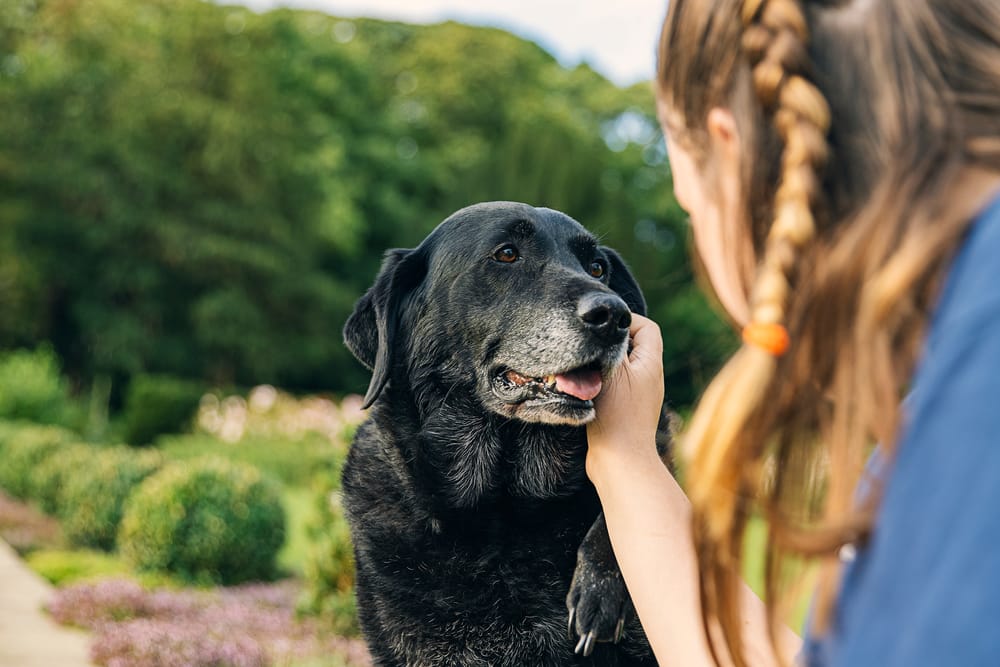
When our pets face a cancer diagnosis, it feels overwhelming. The journey ahead may seem daunting, but modern veterinary medicine offers numerous treatment options and reasons for hope. Learning about pet cancer helps us make informed decisions about our furry family members’ care and treatment.
Many pet parents feel blindsided when they hear their companion has cancer. Knowledge serves as our greatest tool in facing this challenge. Let’s explore what we need to know about cancer in pets, from early detection to treatment options and quality of life considerations.
Common Types of Pet Cancer Treated at Guardian
Cancer can affect various parts of our pets’ bodies, manifesting in different ways. Understanding these variations helps us recognize potential warning signs early. Veterinary oncologists regularly treat several forms of cancer in both dogs and cats, with some types being more prevalent than others.
- Bladder cancer
- Brain tumors
- Fibrosarcoma (soft-tissue cancer)
- Gastrointestinal cancers including stomach, esophagus and colon
- Hemangiosarcoma
- Hepatocellular (liver) cancer
- Leukemia
- Lung cancer
- Lymphoma
- Mammary cancer
- Mast cell tumors
- Melanoma
- Multiple myeloma
- Nasal tumors
- Nerve sheath cancer
- Oral tumors
- Osteosarcoma (bone cancer)
- Squamous cell (skin) cancer
- Thyroid cancer
Warning Signs to Watch For
- Physical Changes: Unusual lumps, swelling, or persistent sores that don’t heal within a few weeks
- Behavioral Shifts: Unexpected changes in energy levels, appetite, or daily routines
- Digestive Issues: Ongoing problems with eating, drinking, or maintaining weight
- Respiratory Changes: Difficulty breathing, persistent coughing, or labored breathing
Pet Cancer Treatment Options Provided at Guardian
Today’s pet cancer treatments offer more hope than ever before. Veterinary oncologists develop personalized treatment plans based on various factors, including cancer type, stage, and the pet’s overall health. These specialized treatments target different aspects of cancer care.
- Chemotherapy: A systematic treatment using specialized drugs to target cancer cells throughout the body. Unlike human chemotherapy, veterinary protocols use lower doses that maintain quality of life while fighting cancer, resulting in fewer and milder side effects for our pets.
- Molecular Tumor Profiling: An advanced diagnostic technique that analyzes the genetic makeup of a pet’s specific tumor. This detailed analysis helps veterinarians select the most effective treatments by identifying which therapies the cancer cells are most likely to respond to, enabling truly personalized medicine.
- Melanoma Vaccine: A groundbreaking immunotherapy treatment specifically designed for dogs with oral melanoma. This vaccine stimulates the pet’s immune system to recognize and fight cancer cells, extending survival times for dogs with this aggressive form of cancer.
- Stelfonta Injections: An innovative treatment derived from blushwood berry extract, specifically approved for mast cell tumors in dogs. This local injection directly targets tumor cells while generally sparing healthy tissue, often achieving results with just one or two treatments.
These advanced treatment options often work best when combined into a comprehensive care plan. Your veterinary oncologist will recommend the most appropriate combination based on your pet’s specific diagnosis, overall health, and individual needs.
Supporting Your Pet Through Treatment
The cancer treatment journey requires thoughtful attention to both physical and emotional support. Creating a comprehensive care routine helps pets maintain strength and comfort throughout their treatment process.
- Create a Comfortable Recovery Space: Designate a quiet, peaceful area in your home with easy access to necessities, featuring soft bedding, readily available water, and protection from household disturbances to promote healing and rest.
- Adjust Daily Routines: Develop a structured schedule that incorporates medication timing, modified exercise periods, and additional rest breaks while maintaining enough familiar activities to keep your pet comfortable and secure.
- Monitor Physical Changes: Keep a detailed daily log of your pet’s weight, appetite, energy levels, and any treatment side effects to help your veterinary team adjust care plans as needed.
- Maintain Nutrition Support: Work closely with your veterinarian to implement a tailored diet plan that meets your pet’s changing nutritional needs, potentially including prescription foods or approved supplements to maintain strength.
- Provide Emotional Care: Dedicate time each day for gentle interaction, whether through quiet companionship, soft grooming sessions, or calm playtime, helping your pet feel loved and supported throughout treatment.
These supportive care steps complement medical treatments and help maintain your pet’s quality of life throughout their cancer journey. Remember to stay in close communication with your veterinary team at Guard, reporting any significant changes or concerns promptly.
Moving Forward Together
Pet cancer treatment continues evolving, offering new hope through advancing medical options. Success stories encourage us, while research brings additional treatment possibilities. The key lies in working closely with veterinary teams to make informed decisions about our pets’ care. At Guardian Veterinary Specialists, Dr. Sue Ettinger (“Dr. Sue Cancer Vet®”) demonstrates this expertise through her “See Something, Do Something Why Wait? Aspirate.” initiative, which emphasizes the importance of early detection for successful treatment.
Remember that each pet’s cancer journey looks different. Veterinary professionals stand ready to guide us through treatment decisions and help navigate challenges along the way. Through understanding, preparation, and dedication to our pets’ well-being, we can face pet cancer with knowledge and hope.

